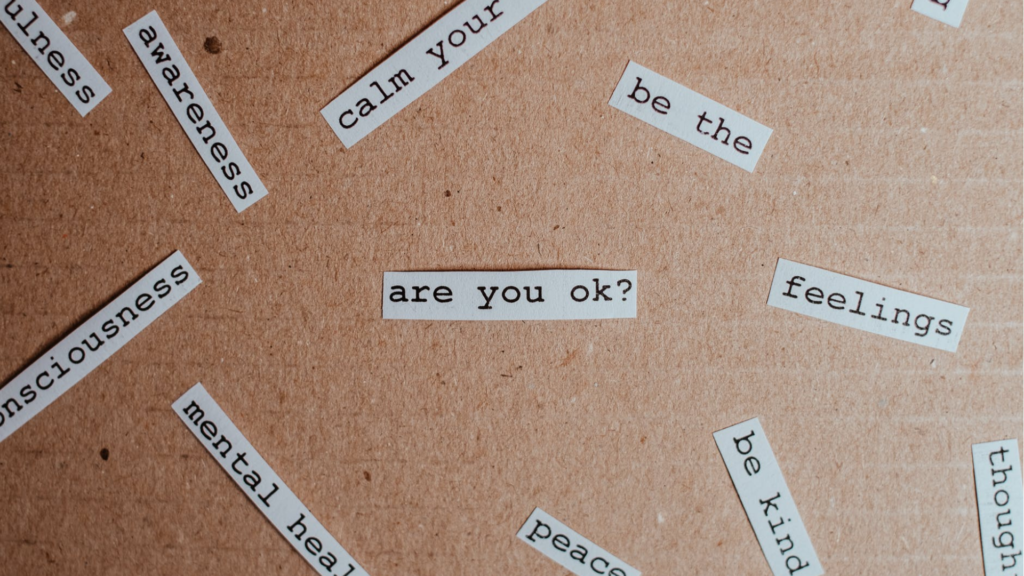Mental health is an important topic that should be discussed more openly and honestly. Mental health not only affects the individual but also their loved ones and friends. It’s important to know how to lead a happier life by improving your mental health. This guide will teach you everything you need to know about mental health, including tips for improving your happiness, managing stress, and coping with anxiety and depression.
Mental health is a term used to describe a person’s emotional and psychological well-being. Everyone experiences difficult times in their lives, but if these struggles persist or begin to have a negative impact on your daily life, you may be dealing with a mental health issue.
Mental health conditions can affect anyone, regardless of age, race, or gender. Some of the most common conditions include depression, anxiety disorder, bipolar disorder, and schizophrenia.
Mental health is just as important as physical health, and yet it often gets overlooked. Many people are reluctant to seek help for fear of being judged or misunderstood. However, there is no shame in admitting that you need help. In fact, seeking treatment is the bravest thing you can do.

Introduction: What is Mental Health?
There are several ways to help people who suffer from mental illnesses, and improving mental health could be among these options. This report investigates the global burden of mental illnesses, as well as the costs and allocation of resources to treat these conditions. The report highlights strategies to combat anxiety, including mental health research and donations, while highlighting promising career paths and donation options. While the report outlines promising options, it does not attempt to compare and contrast them to other global priorities, and it fails to provide the most effective solutions.
The What Works Centre for Wellbeing is the national body of UK wellbeing, whose goal is to improve the well-being of citizens. Mental health disorders are one of the most neglected aspects of global health, yet they impact a wide range of lives and pose multiple challenges to individuals. Furthermore, stigma and policymakers have historically left mental health out of the spotlight. However, there is hope! The report identifies specific steps that private individuals and organisations can take to reduce the global burden of mental illness.
What Represents Mental Health?
Many people think of mental health in terms of positive emotions and functional performance, but that is not necessarily the case. Keyes distinguishes three components of mental health: emotional well-being, social well-being, and physical health. Each relates to different aspects of well-being. Individuals can have a positive or negative attitude toward mental health, or it can depend on a variety of factors. The ability to cope with stressful situations is also an important indicator of good mental health.

The World Health Organization defines mental health as “a state of well-being characterized by an ability to cope with normal stresses in life,” a change from earlier concepts. Although stigma still exists, more people are realizing the benefits of psychotherapy, which can help improve one’s mental well-being. Positive mental health has been linked to higher educational achievement, better relationships, and better quality of life. In addition to these benefits, mental health is often related to a person’s ability to think, act, and interact positively with other people.
What Mental Health Needs?
Traditionally, the definition of mental health needs has been based on the incidence and prevalence of various mental disorders. However, there are several problems associated with this traditional method. First, many patients are averse to treatment, some have learned to cope with their mental illnesses and others simply rely on their religious healers’ wisdom or faith. Second, some patients refuse treatment because they feel the stigma of seeking help is too great. In any case, defining mental health needs is a delicate task.

For this reason, early intervention is crucial to improving the quality of life for those who suffer from mental illnesses. However, this doesn’t always happen. Even when someone has a mental disorder, they aren’t always aware of the symptoms and therefore may be reluctant to seek treatment. In these cases, it is important to find a mental health professional who can evaluate the severity of the mental illness, the severity of the symptoms and the risks of treatment.
How to Improve Your Mental Health
Many people think that the only way to improve their mental health is to take medication. This can have unwanted side effects, and therapy is long and expensive. However, there are many different steps you can take on your own to improve your emotional wellbeing. First, make a list of goals. Second, pick one or two that are achievable, and third, ask for help when you need it. If you’re feeling overwhelmed, try visiting NHS web pages to find guidance on getting the help you need.
Mental health encompasses more than just depression. When you’re sad, angry, or stressed, your body suffers. This will manifest in back pain, digestive problems, and other physical symptoms. The best way to improve your mental health is to find a way to cope with everyday life. And that’s easier said than done. So how do you do it? By following these tips. You’ll soon feel better and enjoy your life more.
When to Seek Professional Help for mental health
Often, individuals with mental health problems live in shame, fear, or isolation. This stigma persists depending on where people live. Depression, for example, affects one in five people in India. Fortunately, treatments are available, and the majority of people who seek help for depression or panic disorder experience significant improvement. Treatment options may include psychotherapy or medication, or both. If one of these methods is not effective, another option may be a combination of the two.
When to seek professional help for mental health and why it’s important to be open and honest about your condition, you can start a supportive community and find a path to a happier life. If you’re feeling lonely or isolated, you may want to seek professional help to reconnect with friends and loved ones. A counsellor can provide advice and guidance for people who are seeking mental health treatment.
Aspects of mental health
There are many aspects of mental health and how to live – from how we think and feel about our lives to how we react to other people and situations. Mental health can make or break you, and poor mental health can cause you to become violent or commit crimes. If you are feeling stressed, angry, or sad, your body will suffer as well. Physical symptoms such as headaches, back pain, and digestive issues can develop. Understanding why mental health is so important can help you make wise choices about your life.

Thankfully, modern society has eliminated many of the traditional sources of unhappiness, such as mental disorders. We now place higher demands on our own mental health and self-direction than ever before. In fact, the high prevalence of mental disorders in the general population may be more of a survey artefact. While Layard is correct to say that mental disorders are a huge social problem, the treatment he suggests might be worse than the disease.
Mental health self-assessment
The Global Burden of Disease estimates that seventy-two million people worldwide suffer from some type of mental disorder. This figure represents a 10.7% percentage of the world’s population. Depression and anxiety are the most common types of mental illnesses. However, it is important to note that not everyone suffers from these conditions. Rather, everyone can benefit from learning more about mental health. There are many tools available online to help you evaluate your own mental health and seek help for any mental illness.
The SHS is a simple questionnaire that can be used to gauge an individual’s overall mental health. The items can be used as a guideline or as interview questions. For the best results, you should use the SHS to measure your own self-esteem and general wellbeing. It is also helpful to discuss how the questions relate to your professional development. For more information on the SHS, visit the National Psychological Corporation’s website.
Practical Tips on Living a Happier Life
The places you live have a profound impact on your happiness. If you don’t get along with your neighbours, it’s time to consider moving. Explore neighbourhoods and talk to friends and neighbours to see if they like them. “How to Design Our World for Happiness” by Jay Walljasper suggests looking for neighbourhoods that have green commons, sidewalks, and community gatherings. Those are the kind of places that make you happy.

- Everyone wants to live a happy life, but sometimes it’s hard to know where to start. Here are some practical tips on how to achieve happiness and stay away from mental health issues.
- One of the most important things you can do for your mental health is to have a good support system. This means having close friends and family who you can rely on for emotional support when things get tough.
- A healthy lifestyle is also key to maintaining mental wellbeing. Make sure you get enough exercise and eat a balanced diet full of fruits and vegetables.
- It’s also important to find ways to relax and de-stress. Try yoga, meditation, or aromatherapy massages.
- Finally, don’t be afraid to ask for help if you’re struggling with your mental health.
Conclusion
In conclusion, it is evident that by taking care of your mental health, you can lead a much happier and healthier life. There are plenty of ways to do this, and by finding the right approach for you, you can start seeing positive changes in your mood and overall well-being. So don’t wait any longer, start working on your mental health today!


One Comment
[…] The Complete Guide to Mental Health and How to Lead a Happier LifeMental health is an important topic that should be discussed more openly and honestly. Mental health not only […]